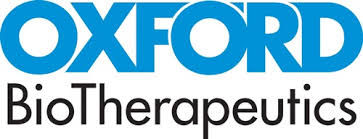预约演示
更新于:2025-05-07
CD205 x Tubulin
更新于:2025-05-07
关联
1
项与 CD205 x Tubulin 相关的药物作用机制 CD205抑制剂 [+1] |
最高研发阶段临床1期 |
首次获批国家/地区- |
首次获批日期1800-01-20 |
3
项与 CD205 x Tubulin 相关的临床试验NCT05930951
A Phase Ib Study of OBT076 or OBT076 Followed by Balstilimab in Patients with Recurrent or Metastatic (R/M) Adenoid Cystic Carcinoma (AdCC) of the Head and Neck (H&N)
Adenoid cystic carcinoma (AdCC) is a rare salivary gland malignant tumor that accounts for approximately 1-3% of all head and neck cancers. AdCC is often charaterised by a long natural history with a propensity for indolent but relentless growth and dissemination. Local recurrences and late distant metastases are common findings in about 35% of the patients and associated with a poor prognosis1. AdCC is among the most lethal salivary gland tumors2 with no proven therapy for metastatic disease. Little is known about endogenous immune response directed against AdCC. However, in a relatively large series of 28 AdCC tumor, the immune profiling has shown in most tumors high and frequent programmed death ligand 2 (PD-L2) expression and PD-L1 was generally not expressed on tumor and infiltrating cells3.
The Antibody Drug Conjugates (ADCs) are emerging as a novel therapeutic option in cancer treatment that looks promising for solid tumors. An experimental CD205/Ly75-directed ADC, OBT076 induce potent cytotoxic and antitumor activity. Recently, the combination of immunohistochemistry (IHC) and tissue micro array (TMA) was performed in a series of 46 AdCC, showing a unique profile with both frequent and high expression of CD205/Ly75, much higher than for other solid tumors. In a phase I study, OBT076 demonstrated promising results for 3 patients with 2 partial responses and 1 complete response for a gastric cancer4. In this last patient, analysis showed an increase in PD1+, CD4+ and CD8+ cells suggesting that OBT076 activates the patient's immune response against the tumor, especially PD-1 targeted therapies4.
Based on this rational and on the high level of expression of CD205/Ly75 in AdCC, the hypothesis tested in this study is that OBT076 could be a potential effective treatment for R/M AdCC, which is an orphan lethal disease. The efficacy of OBT076 will be tested either alone or followed by an anti PD-1 inhibitor (Balstilimab) with the hypothesis that OBT076 will induce immune infiltrate that could restore sentivity to PD-1 targeting.
The Antibody Drug Conjugates (ADCs) are emerging as a novel therapeutic option in cancer treatment that looks promising for solid tumors. An experimental CD205/Ly75-directed ADC, OBT076 induce potent cytotoxic and antitumor activity. Recently, the combination of immunohistochemistry (IHC) and tissue micro array (TMA) was performed in a series of 46 AdCC, showing a unique profile with both frequent and high expression of CD205/Ly75, much higher than for other solid tumors. In a phase I study, OBT076 demonstrated promising results for 3 patients with 2 partial responses and 1 complete response for a gastric cancer4. In this last patient, analysis showed an increase in PD1+, CD4+ and CD8+ cells suggesting that OBT076 activates the patient's immune response against the tumor, especially PD-1 targeted therapies4.
Based on this rational and on the high level of expression of CD205/Ly75 in AdCC, the hypothesis tested in this study is that OBT076 could be a potential effective treatment for R/M AdCC, which is an orphan lethal disease. The efficacy of OBT076 will be tested either alone or followed by an anti PD-1 inhibitor (Balstilimab) with the hypothesis that OBT076 will induce immune infiltrate that could restore sentivity to PD-1 targeting.
开始日期2023-11-29 |
申办/合作机构- |
NCT04064359
A Phase I, Open-label, Dose Finding Study to Assess the Safety, Tolerability, PK, and Preliminary Efficacy of OBT076, a CD205-directed ADC, in Recurrent and/or Metastatic CD205+ Solid Tumors
The purpose of this study is to evaluate OBT076, which is a drug that combines an antibody with an anti-cancer drug. This class of drugs are called Antibody-Drug Conjugates (ADC). Antibodies are normally produced in the human body by the immune system to fight infections but can be designed to target cancer cells and deliver an anti-cancer drug. OBT076 is composed of an antibody that targets the CD205 protein on cancer cells and delivers an anti-cancer drug which can kill them. OBT076 is an "Investigational Drug", which means that it is still being studied and has not yet been approved by the US Food and Drug Administration (FDA), the European Medicines Agency (EMA) or any other regulatory authorities to be prescribed by doctors for the treatment of metastatic or recurrent solid tumors. The use of OBT076 in this study is investigational.
This is a Phase I research study designed to look at several dose levels of the study drug to find the highest dose level that is safe and well-tolerated (does not cause unacceptable side effects), and to examine the effects of the study drug in a small group of research participants. The study will also look at the effectiveness of OBT076 as an anti-cancer therapy. Once the optimal dose is determined and safety is assessed, additional research participants will be treated at the optimal dose level to further evaluate safety and effectiveness.
This is a Phase I research study designed to look at several dose levels of the study drug to find the highest dose level that is safe and well-tolerated (does not cause unacceptable side effects), and to examine the effects of the study drug in a small group of research participants. The study will also look at the effectiveness of OBT076 as an anti-cancer therapy. Once the optimal dose is determined and safety is assessed, additional research participants will be treated at the optimal dose level to further evaluate safety and effectiveness.
开始日期2019-07-25 |
申办/合作机构 |
100 项与 CD205 x Tubulin 相关的临床结果
登录后查看更多信息
100 项与 CD205 x Tubulin 相关的转化医学
登录后查看更多信息
0 项与 CD205 x Tubulin 相关的专利(医药)
登录后查看更多信息
分析
对领域进行一次全面的分析。
登录
或

生物医药百科问答
全新生物医药AI Agent 覆盖科研全链路,让突破性发现快人一步
立即开始免费试用!
智慧芽新药情报库是智慧芽专为生命科学人士构建的基于AI的创新药情报平台,助您全方位提升您的研发与决策效率。
立即开始数据试用!
智慧芽新药库数据也通过智慧芽数据服务平台,以API或者数据包形式对外开放,助您更加充分利用智慧芽新药情报信息。
生物序列数据库
生物药研发创新
免费使用
化学结构数据库
小分子化药研发创新
免费使用
